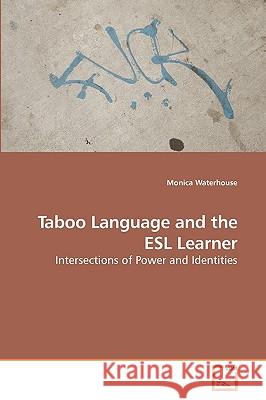Taboo Language and the ESL Learner » książka
Taboo Language and the ESL Learner
ISBN-13: 9783639220094 / Angielski / Miękka / 2009 / 116 str.
Taboo language is a fixture of many aspects of contemporary communication and is ubiquitous in popular culture. Yet frank discussions regarding bad language are typically absent from ESL (English Second Language) classrooms. This book argues that this may be a disservice to ESL learners. It describes an ethnographic study exploring the complex interplay of ESL learner identities and power relationships with respect to English taboo language. Bourdieus Theory of Practice and a multiple literacies perspective inform an analysis of the compelling stories of six adult ESL learners. These illustrate how taboo language practices are taken up in hybrid and sometimes contradictory ways as learners cross linguistic and cultural boundaries. Identities become sites of tension as learners resist and appropriate different practices in strategic struggles for legitimacy and symbolic power. By highlighting the significant social implications of taboo language, this book speaks to both language educators and language acquisition researchers concerned with encouraging teaching practices that are more in tune with the identities and empowerment of ESL learners.











